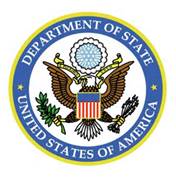I keep a file I call “life purposes” and add to it from time to time. About once a month, I pull something out of it to reread. I’ve had the file for many years.
“Thoughts from a foreign correspondent” is the title of an article I saved from the March 14, 1987, issue of Editor & Publisher.
The author of this particular article is a lifelong journalist, Georgie Anne Geyer, born in 1935 and still writing, according to my current internet search.
In the 1987 article, Geyer said she loved and cared about other cultures, languages, and history. She wanted to be one of those “couriers between cultures.”
She persevered in an era when women journalists were mostly relegated to the society sections of newspapers. Nevertheless, she managed to become the Latin American correspondent for the Chicago Daily News in 1964 and never looked back.
Geyer’s column is part of what inspired me also to search for that kind of job. The search took many years, but the chance finally came, and I had to decide in the space of a weekend whether to make a momentous change in my life.
I decided to leap and accepted a position with the U.S. Foreign Service. Tours took me to those places in my own dreams of a courier between cultures.
Answers to dreams come in different ways. Holding a dream, even tenaciously, does not mean we will always realize it. Seeing a future beyond our present, however, blesses us with the ability to search and change.


 So begins my novel, Distant Thunder, the story of Neal Hudson, a U.S. Foreign Service professional. Distant Thunder, like several of my books, deals with a Foreign Service officer, the official name for a U.S. diplomat. Most Americans have no idea our government has a Foreign Service. Thus, I often create a scene in my novels in which the officer has to explain what he or she does.
So begins my novel, Distant Thunder, the story of Neal Hudson, a U.S. Foreign Service professional. Distant Thunder, like several of my books, deals with a Foreign Service officer, the official name for a U.S. diplomat. Most Americans have no idea our government has a Foreign Service. Thus, I often create a scene in my novels in which the officer has to explain what he or she does. In Distant Thunder, Ms. O’Barr has melded a personal journey of searching and restoration with a candid, point-blank look at American culture and faith. Okay, that’s been done before. A lot. But what makes this book unique is the author’s perspective on America through the eyes of Americans who have spent a considerable portion of their adult lives outside of America. . . .
In Distant Thunder, Ms. O’Barr has melded a personal journey of searching and restoration with a candid, point-blank look at American culture and faith. Okay, that’s been done before. A lot. But what makes this book unique is the author’s perspective on America through the eyes of Americans who have spent a considerable portion of their adult lives outside of America. . . .